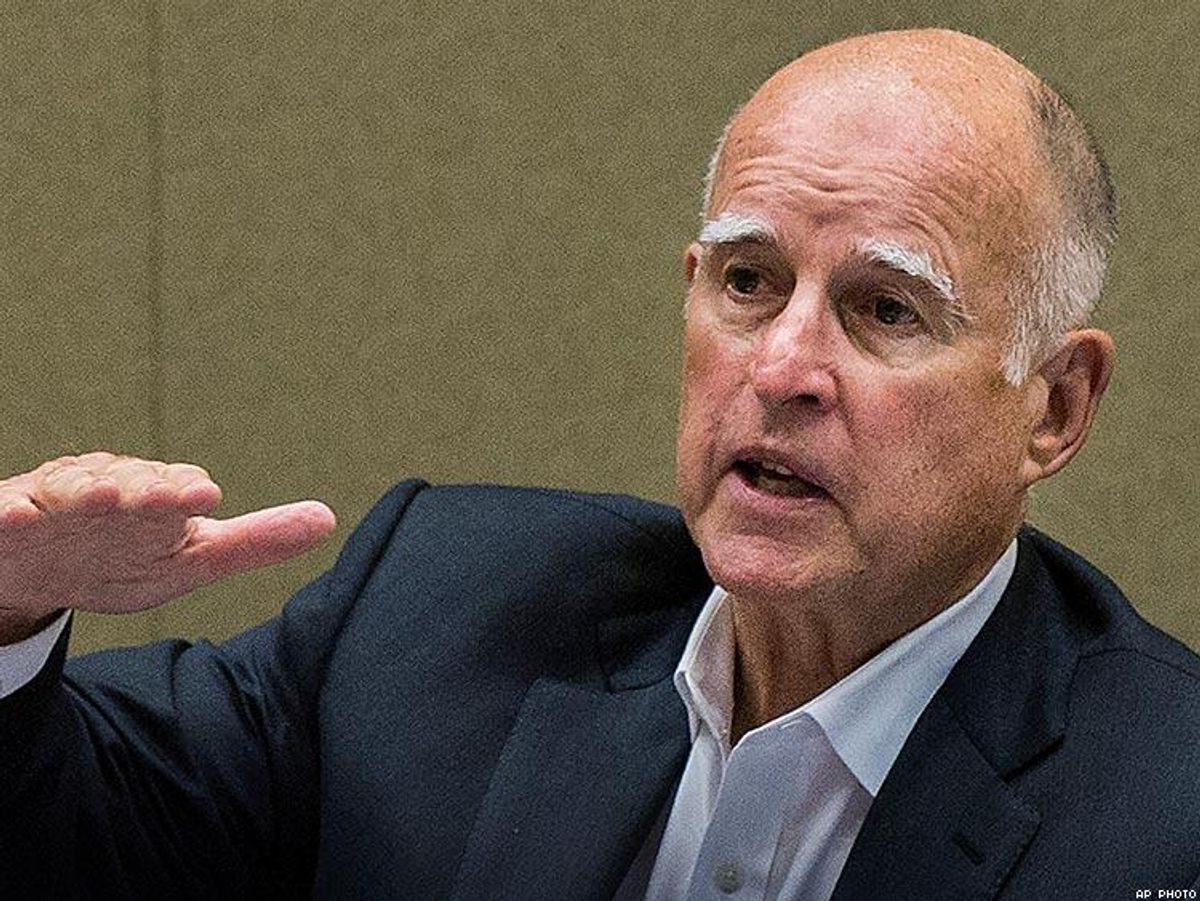California Gov. Jerry Brown today signed three major pro-LGBT bills into law today.
One is a first-in-the-nation bill requiring that companies doing significant business with the state provide the same benefits to their transgender employees that cisgender (nontrans) workers receive.
The measure, authored by Sen. Mark Leno, prohibits any state agency from entering into a contract in the amount of $100,000 or more with any company that does not offer equal benefits to all employees, regardless of gender identity. California is the first state to enact such a law; it goes into effect January 1.
"California law already stipulates that employers cannot deny transgender people health care and other benefits, but a loophole in state law has allowed companies that contract with the state to refuse equal health coverage," Leno said in a press release. "This bill closes that loophole. Denying equal benefits to employees at the same company based on gender identity is harmful and wrong. It also can jeopardize employee health and strain publicly funded programs that fill in the gaps when employers don't provide the same benefits to everyone."
The bill, Senate Bill 703, was cosponsored by the National Center for Lesbian Rights, Equality California, and the Transgender Law Center.
The governor also signed a bill updating the laws governing assisted reproduction in ways that will benefit LGBT Californians. Assembly Bill 960, authored by Assemblymember David S. Chiu, provides that unmarried couples using assisted reproduction to become parents will be recognized as such on the same terms as married parents from the moment their child is born; removes the requirement that a doctor or sperm bank must be involved when using assisted reproduction in order to ensure that the donor is not a parent; and provides clear direction as to how egg donors should be treated under California law. It also goes into effect with the new year.
Previously, the law did not mandate parental recognition for unmarried couples, notes NCLR, which supported the legislation along with Equality California and the Our Family Coalition. The new law is also important to LGBT families because many of them use home insemination rather than sperm banks.
Another piece of legislation, Assembly Bill 827, provides resources and information to aid teachers in identifying and assisting LGBT students in need of support in dealing with bullying or lack of social acceptance. LGBT youth, who have a higher dropout rate than their straight peers and are four times more likely to attempt suicide.
"My experience as a classroom teacher has taught me one of the most important keys to academic success is a safe and inclusive learning environment," said Assemblymember Patrick O'Donnell, the bill's author, and chair of the Assembly Education Committee, in a press release from Equality California, which backed the measure.
Finally, Brown signed the LGBT Disparities Reduction Act (Assembly Bill 959), which will allow state agencies that oversee public health to collect voluntarily shared data on the sexual orientation and gender identity of the people they serve, just as they collect other types of demographic data. If the agencies see significant health disparities related to these characteristics, they much report them to legislators and the public.
Gathering this data will make it possible for the state to address such disparities, said Chiu, who also authored this bill. "We must take this first essential step towards overcoming the historical invisibility of the LGBT community to the state when it comes to crucial resources and services," he said in July, as the bill was moving through the legislature. It had the support of Equality California and other LGBT groups.


















































































Viral post saying Republicans 'have two daddies now' has MAGA hot and bothered